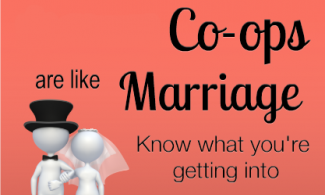EMPOWERMENT and LOVE 7.
The depth and intensity of anyone’s commitment to any relationship is dependent on many factors. I have recently become very clear on two of them for myself.
First, I am not going to be part of a deep and intense partnering relationship—sexual or otherwise—that requires me to make it okay for the other person to trust me, or requires they make it okay for me to trust them. Each of us, alone, is responsible for our individual trusting or not trusting, and for deciding on the criteria for choosing to trust the other enough to commit to a particular relationship.
For example, if I don’t trust Tom enough that he will be there for my feedback on how poorly he cleans up after himself in the kitchen, then it is my choice to confront him about it or not. If I am a bit wise, I will wonder beforehand how I will react should he get defensive to my feedback. If I don’t trust he will and won’t be willing to take responsibility for that, then I will probably not confront him. That is, I am not trusting him enough to partner seriously with him in mutually caring for the kitchen we share. The same applies to much deeper relationships that involve me moving deeply into my vulnerability, such as sexual and significant work relationships.
Second, the depth and intensity to which I can commit to a partnering relationship is very dependent on there being a mutual commitment to continuously wanting to move out of the oppression dynamic of blaming and identifying self as victim of another’s villainy. We are all victims and we all behave as victims and villains in diverse and multitudes of ways across the whole of our lives, including our most important relationships.
However, my being freed of any instance of your villainy—personal or systemic—depends fundamentally on how far I can move toward identifying myself as a self-empowering person seeking empowered mutuality with others. This requires moving away from identifying myself as a victim—personally or systemically—even though another person or a system may be victimizing me in some way. This moving away from identifying as a victim almost always involves two things: seeing how I behave as a victim, and knowing that I am not my behavior.
My being freed of my villainy depends fundamentally on my wanting more to be held accountable for it by myself and others. This is how I or you can move out of the oppression dynamic and into the process of becoming an empowering self seeking empowered mutuality.
Doing this turns on us grasping that holding and being held accountable—as opposed to blame and rage—is empowering. This takes a huge transformative leap—personally and systemically. In turn, taking such leaps requires a transformative culture that strongly promotes self-empowerment, empowered mutuality, learning to welcome accountability more than resisting it, and developing the ways to 1) see how we take on behaving as victim and villain, and 2) moving out of the oppression dynamic personally and systemically.


Add new comment